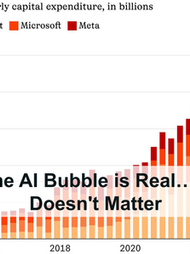Experts express concern over Disney’s virtual reality technology
- Adrien Book

- Jan 22, 2023
- 3 min read
As a journalist, I have to say that I am deeply concerned about the implications of Disney’s recent ventures into virtual reality. While the technology itself is certainly impressive, I fear that the impact it will have on the entertainment industry — and society as a whole — will be far from positive.

First and foremost, it’s important to understand that virtual reality is not just a new way to consume entertainment — it’s a fundamentally different experience. As Dr. Jane McGonigal, a renowned game designer and virtual reality expert, puts it: “Virtual reality has the power to completely transport us to another world, immersing us in a way that no other medium can.” This level of immersion has the potential to fundamentally change the way we interact with media, and I’m not convinced that this change will be for the better.
One of the biggest concerns is the impact that virtual reality will have on our social interactions. As we become more and more immersed in these virtual worlds, we risk becoming increasingly isolated from the real world and the people around us. Studies have shown that excessive use of virtual reality can lead to feelings of depression and loneliness, and can also cause a disconnection from the reality, leading to a lack of empathy, and an inability to relate to people in the real world. This could have a disastrous impact on our relationships and our ability to form meaningful connections with others. Furthermore, as we spend more time in virtual worlds, we may be less inclined to engage in physical activities and social activities in the real world, leading to a lack of exercise and a lack of human interaction.
Another major concern is the impact that virtual reality will have on our economy. As more and more people turn to virtual reality for entertainment, there is a risk that traditional forms of media — such as movies and television — will become obsolete. This could lead to widespread job loss and economic disruption, as entire industries are forced to adapt or die. Furthermore, Virtual Reality could lead to a decrease in productivity as people may spend a significant amount of time in virtual worlds, neglecting their responsibilities in the real world.
Perhaps most concerning of all is the impact that virtual reality will have on our ecology. As we spend more and more time in virtual worlds, we risk losing touch with the natural world and the importance of preserving it. Virtual reality could also have a negative impact on our energy usage. The production and use of virtual reality devices consumes large amounts of energy, and as the popularity of virtual reality increases, so too will the amount of energy consumed. Furthermore, as we spend more time in virtual worlds, we may be less inclined to engage in activities that promote environmental conservation, such as hiking, camping and other outdoor activities.
All in all, while I can appreciate the technological advancements that have made virtual reality possible, I cannot ignore the serious negative consequences it poses. As a journalist and member of society, I strongly urge Disney and other companies to proceed with caution and prioritize the well-being of society over short-term profits. It is important for companies to conduct thorough research and consider the potential long-term consequences of virtual reality before introducing it to the masses. We must also consider the ethical implications and potential negative impacts on society, economy, and ecology before embracing virtual reality as a new form of entertainment. It is important for society to approach this new technology with a critical eye, and to be aware of the potential negative consequences before fully embracing it.
Disclaimer
This story is fake. None of it was written by a human. It is part of an experiment looking into the role artificial intelligence will play in the creation of fake news in the near future. Results will be published on the 1st of February. Make sure to sign up to get them.























Dive into the chaotic world of Ragdoll Archers! This game lets you challenge friends or AI in hilarious physics-based battles. Master your bow, launch your ragdoll character, and dominate the arena. Play Ragdoll Archers online for a ridiculous showdown where anything can happen!
Thank you for your wonderful posts, blogger! I always enjoy your content and hope this site continues to thrive. I'd also like to share a game I've been playing a lot lately: Drift Boss play online.
Drive Mad unblocked isn’t just fun—it’s a heart-racing driving test: get your tiny car to the finish, and while picking up the game is simple, the unexpected hurdles in each level make mastering these crazy tracks a true adventure!
I just discovered Melon Playground and I’m hooked! The freedom to create crazy scenarios and watch them unfold is what makes this game so addictive.
Click here provide members with discounts on over-the-counter medications, vitamins, and health essentials, promoting better health management and cost-effective wellness solutions. kaiserotcbenefits.com - more details here
Click here help you find recent death notices, providing information about funeral services, memorials, and tributes for loved ones in your area. obituariesnearme.com - more details here
Click here? Many users have had mixed experiences with the platform, so it's important to read reviews and verify deals before booking. istravelurolegit.com - more details here